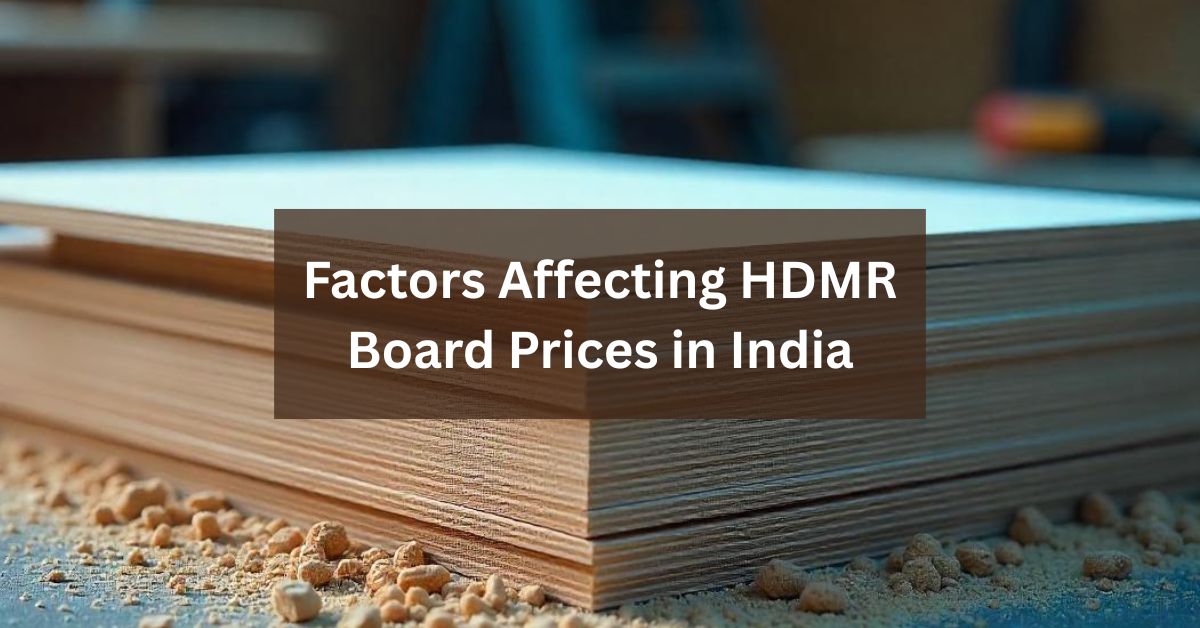Get Support
07496822205
Factors Affecting HDMR Board Prices in India

As the wood-based panel business matures by 2025, High-Density High Moisture Resistant (HDHMR) boards will be the preferred choice for modern interior applications. Their exceptional durability, dimensional stability, and moisture resistance make them a reliable and valuable material for a wide range of applications.
However, the HDMR Board price in India is determined by a variety of interconnected factors. In this blog, we will explore and investigate the important factors influencing HDHMR board prices in the Indian market.
Raw Material
The higher the component price, the higher the manufacturing cost. The key components utilized in the manufacture of HDHMR boards include hardwood fibers, resins, and chemical additives, which, of course, add a significant cost.
The roots must be strong to support a tall building, and raw materials are such roots for high-quality HDHMR. Any changes in the cost of these materials have a direct impact on the final product pricing.
Rising hardwood costs as a result of deforestation or supply chain disruptions can considerably increase HDHMR board prices. Because these resources are frequently exposed to market volatility, manufacturers must modify their pricing strategy accordingly.
Production Technology and Energy Costs
A good product begins with the proper investment in the machinery required to produce it. HDHMR board production needs precise technology and energy-demanding processes, where significant resources are needed to ensure the boards fulfill high-quality and reliability criteria.
The boards are manufactured under high-pressure and constant temperature conditions, necessitating significant power consumption. There is a lot more to the high-end machinery that is employed throughout the production process, and high-end machinery comes with machinery maintenance, operational charges, and labor costs, all of which contribute to the overall manufacturing expense. As energy prices change in India, these differences necessarily affect production costs and, as a result, the market pricing of HDHMR boards.
Product Specifications and Quality Parameters
Thickness and Dimensions
HDHMR board construction and specifications are heavily influenced by their intended application. Because not all HDMR boards can be utilized everywhere, different types of boards are designed to satisfy the needs of specific locations.
Application-Specific Pricing
Specialized boards are created to fulfill the specific needs of numerous applications, including modular kitchen cabinets, wardrobes, furniture panels, wall paneling, and partitions. Each application type necessitates distinct thicknesses and performance qualities, resulting in variances in board composition and durability. This distinction highlights the necessity to meet differing performance and material standards based on the practical and aesthetic goals of each use case.
Conclusion
The intended use of CrostA Panels HDHMR boards has a considerable impact on their structure and characteristics. Specialized boards are designed to fulfill the specific requirements of numerous applications, including modular kitchen cabinets, wardrobes, furniture panels, wall paneling, and partitions.
Each application type necessitates distinct thicknesses and performance qualities, resulting in varying board composition and durability. Understanding these variances is critical for determining HDMR board price, as it is inextricably tied to the board's intended functionality and quality.
